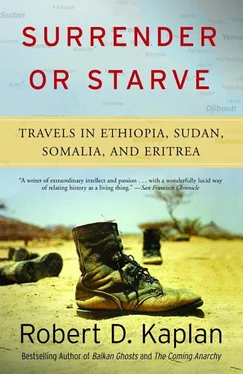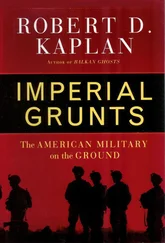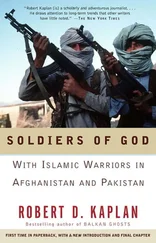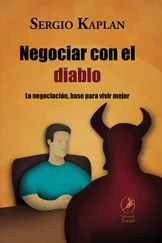In 1996, following a long series of town meetings, the Eritreans drafted what one foreign diplomat called an “impeccable constitution.” But after a second war with Ethiopia erupted in 1998, the constitution was never implemented. The 1998–2000 Eritrean–Ethiopian War resulted in, by some estimates, 19,000 Eritrean dead and 60,000 Ethiopian dead, with tanks and fighter jets engaged in desert combat reminiscent of the Arab–Israeli wars of 1967 and 1973. A U.S.-brokered ceasefire has resulted in the current demarcation of the disputed border, under U.N. auspices.
Since this latest war, the very stubbornness and social discipline that continue to make Eritrea the most civil of societies in a myriad of ways rarely considered by Western journalists and policy elites, have also made it a pariah in Europe and the United States—and for good reason. In 2001, national elections were postponed indefinitely (though free and fair elections at the village level were underway at the time of my visit). Far more disturbing, though, in a widespread crackdown on dissent, eleven high-ranking officials, nine journalists, several businessmen, and two Eritrean nationals working for the political and economic sections of the U.S. Embassy were arrested and are still being held without charge. Eritrea now has the worst press repression in Africa. Moreover, a campaign of national mobilization forces young men and women to spend eighteen months in the military and civil service: a good idea in principle, except that they are often kept much longer without any guarantee of being released. That, and the exceedingly slow pace of economic reform, along with the recent political repression, has led to young people quietly leaving the country. An increasingly disaffected diaspora refuses to invest here in substantial amounts until conditions liberalize.
“We’re not asking all that much,” pleaded one foreign diplomat to me. “They don’t even have to hold national elections, if they would just implement a version of China’s economic reforms this place could bloom overnight like Singapore, given its social control and small population.” But as several diplomats admitted, except for some of the urban elite in Asmara, the sense of patriotism is so strong here that they detect no widespread unhappiness with the regime. “The change would have to come at the top, and it’s not altogether impossible that we will wake up tomorrow morning and learn that Isaias [President Afewerki] is no longer around,” whispered one resident foreigner. Another outside expert told me that he has not given up on President Afewerki, but if 2003 goes by without some political and economic reform he will consign him to the ranks of other boorish African strongmen.
My first interview with Isaias Afewerki was in 1986, in a cave in northern Eritrea, during the 30-year war with Ethiopia. That meeting had been scheduled for 10 a.m. and at ten exactly he walked in and asked, “You have questions for me?” He hasn’t changed. He was on time down to the second, and spoke in the same blunt and remote tone, with the same shy, withdrawn asceticism as sixteen years before. In contrast to the gas-bag homilies one hears from so many Arab and African politicians, Afewerki spoke to me for over two hours in intense, spare bursts of cold analysis. He may be the most intellectually interesting politician in the history of postcolonial Africa.
“All that we have achieved we did on our own. But we have not yet institutionalized social discipline, so that the possibility of chaos is still here. Remember, we have nine language groups and two religions. No one in Africa has succeeded in copying a Western political system, which took the West hundreds of years to develop. Throughout Africa you have either political or criminal violence. Therefore, we will have to manage the creation of political parties, so that they don’t become means of religious and ethnic division like in the Ivory Coast or Nigeria.” He went on to say that China was on the right path, unlike Nigeria, with its 10,000 dead in communal riots since the return of democracy there. “Don’t morally equate the rights of Falun Gong with those of hundreds of millions of Chinese who have seen their lives dramatically improve,” he told me.
As for his Red Sea neighbor, Yemen, Afewerki called it “a medievalist society and tribal jungle going through the long transition to modernity.” He accused it of advancing an “Arab national security strategy against Israel,” a country he openly supports. However, he accepted the recent international arbitration that awarded the disputed Hanish Islands in the Red Sea to Yemen. Ethiopia, he said, could fragment because it is controlled by minority Tigreans who have created a Balkanized arrangement of ethnic groups (Amharas, Oromos, etc.), rather than try to forge an imperial melting pot in the way of the late emperor, Haile Selassie.
Despite his refreshing, undiplomatic brilliance, a few hours with Afewerki can be troubling. His very austerity, personal efficiency and incorruptibility is mildly reminiscent of Mengistu himself, who also suffered from a seeming excess of pride, even though he was a mass-murderer while Afewerki could yet turn out to be among Africa’s most competent rulers. Civilization in the Horn of Africa has often bred the sharpest political minds who, with cold efficiency, deal with their intellectual enemies not through written attacks but by imprisoning or killing them. And it is said repeatedly in Asmara that the president has closed himself off since arresting the very people who had challenged him intellectually.
General Tommy Franks, on several visits here, and most recently Secretary of Defense Donald Rumsfeld, in a visit last December, held long talks with Afewerki. “The meetings were superb,” Aferwerki told me. “I mean that they were frank, without pretensions or flattery on either side. I share the strategic view of the Americans in the region. French forces in Djibouti have been a stabilizing factor, and U.S. troops will add to that. You need outside powers to keep order here. It sounds colonialist, but I am only being realistic.”
Afewerki has essentially offered the U.S. military anything it wants: bases without restrictions to bomb anyone it wants, at any time it wants. While the World Bank criticizes the viability of a new airport with a long jet runway at Massawa, Afewerki reportedly told Rumsfeld that “the runway can handle anything the U.S. Air Force wants to land on it.” Eritrea also boasts deep-water port facilities at Massawa and Assab, strategically placed at the mouth of the Red Sea.
Afewerki’s strategy seems to be the following. As he put it, “The increasing social and economic marginalization of Africa will be a fact of life for a very long time to come.” Ethiopia, in particular, he went on, will weaken internally as the Oromos and others demand more power. Its ethnic-Tigrean president, Meles Zenawi, already lives inside a vast security apparatus designed for his own protection. Meanwhile, across the Red Sea in Yemen, oil and water are running out, even as the number of armed youth swells: the political order of significant parts of Arabia could be the victim. And with fighting terrorism a permanent strategic priority of the United States, a stable and disciplined Eritrea makes it the perfect base for projecting American power and helping Israel in an increasingly unstable region. That, in turn, will foster the kind of Singaporean-type development Eritrea appears suited for.
When I pressed him about human rights abuses, which Rumsfeld himself pointedly raised in their meeting two weeks earlier, Aferwerki said that “if you just leave us alone, we will handle these matters in a way that won’t damage our bilateral relationship, and won’t embarrass us or you.” He indicated that he is more likely to satisfy U.S. demands on human rights in the context of a growing military partnership, but would not do so if merely hectored by the State Department.
Читать дальше












